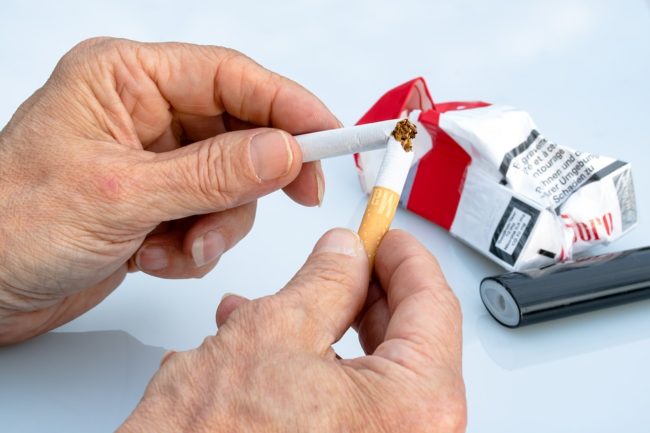Lung health is important, no matter who you are or what your individual risk factors are. If your family has a history of lung health issues, or if you’ve been exposed to lung-related risks in the past, it’s even more important for you to take good care of your lungs.
Fortunately, there are a handful of strategies, habits, and behaviors that can collectively keep your lungs in better condition.
Avoid Smoking
The most obvious tip anyone can offer is to avoid smoking altogether. All kinds of tobacco cigarettes are demonstrably proven to negatively affect your health. In fact, cigarette smoking causes more than 480,000 deaths every year in the United States, or more than 1 in 5 deaths all around. Smoking increases your likelihood of developing COPD, including emphysema and chronic bronchitis. It also has a clear link to most types of lung cancer. If you have asthma, smoking can trigger an asthma attack, or make an existing asthma attack worse.
As if that weren’t enough, smoking can also increase your risk of coronary heart disease, stroke, pregnancy complications, bone health, tooth health, diabetes, and dozens of types of cancer all throughout the body.
Additionally, understand that secondhand smoke can produce many of these symptoms, especially if you inhale that smoke on a regular basis. Avoid close proximity to people smoking on a regular basis.
Many people falsely believe that these health risks to your lungs only apply to smoking tobacco. In reality, all types of smoke inhalation have the power to damage your lungs and increase your risk of respiratory illnesses and cancer. In fact, many health institutions and educational facilities are concerned that the legalization of cannabis in many states will eventually lead to a surge in respiratory illness, and higher demand for respiratory care. Smoking cannabis, like smoking tobacco, can lead to bullae, chronic bronchitis, chronic cough, COPD, respiratory infections, and more.
If you do smoke, stop. Every cigarette you smoke will increase your risk, and it’s never too late to minimize that risk.
Exercise Regularly
When you run, you strengthen your legs. When you bench press, you strengthen your chest. And when you exercise in a way that makes you breathe harder, you strengthen your lungs. That’s why cardiovascular exercise is one your greatest tools for improving your lung health.
During a session of heavy exercise, your breathing increases from something like 15 times per minute to 40-60 times per minute. It’s a workout for your lungs that can improve the durability of your lungs and improve their efficiency at exchanging oxygen and carbon dioxide.
It’s recommended that you exercise at a moderate intensity 5 days per week, for a minimum of 30 minutes each day. Moderate exercise could include walking swiftly, jogging, biking, swimming, or rowing. As long as you’re engaging your body consistently, sweating and breathing hard, you can consider it to be moderate exercise.
Of course, it’s worth noting that regular exercise comes with a host of other benefits as well.
Reduce Your Exposure to Pollutants
Contaminants in the air can harm your lungs, especially if you’re exposed to those contaminants over a long period of time. If you live in an area with high levels of pollution, consider moving to a different area. If you’re exercising outdoors, try to avoid areas with heavy traffic, so you can avoid breathing in the exhaust.
If you work in conditions that would expose you to pollutants, make sure to take all proper safety precautions. These often include measures like:
- Wearing proper facemasks and safety equipment. Filters and masks can prevent you from breathing in certain fumes and particles.
- Avoiding certain areas altogether. Certain high-risk areas should be avoided at all costs.
- Seeking proper ventilation. If you’re working with substances that produce harmful fumes, exercising caution with proper ventilation features can clear the area.
Additionally, when using commercial cleaning products in your home or producing harmful fumes, make sure you open the windows and use the proper facial protection.
Practice Deep Breathing Exercises
Some studies suggest that deep breathing exercises, if conducted regularly for 2-, 5-, or 10-minute periods, can improve both short-term and long-term lung function. This is because deep breaths force your full lungs to be used, and can have a cleansing and strengthening effect.
Improving Your Health
You don’t need to be perfect to have better lung health. In fact, every step you take is going to count. If you can’t exercise for 5 days a week, try exercising for 2 or 3 days to start. If you can’t practice deep breathing every day, do it once a week. And if you feel like you can’t quit smoking, try reducing the number of cigarettes you smoke. Your lungs will thank you.
Photo Credits
Photos are pixabay creative commons
Guest Author Bio
Jamie Lansley
Jamie is a freelance writer who covers trends in business, technology, and health. She loves to go skiing, camping, and rock climbing with her family.
Recent Guest Author Articles:
- How Strong Business Training Translates Into Everyday Decision-Making
- New Career and Degree Paths for Educators Who Want to Make a Broader Impact
- Finding the Right Plumber in Portland: A Comprehensive Guide for Homeowners
- Why Choose Elara Caring for Jackson, MI Home Health Services?
- How I Turned Poetry into a Paycheck




Please Share Your Thoughts - Leave A Comment!